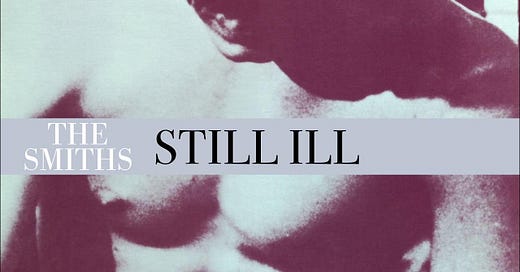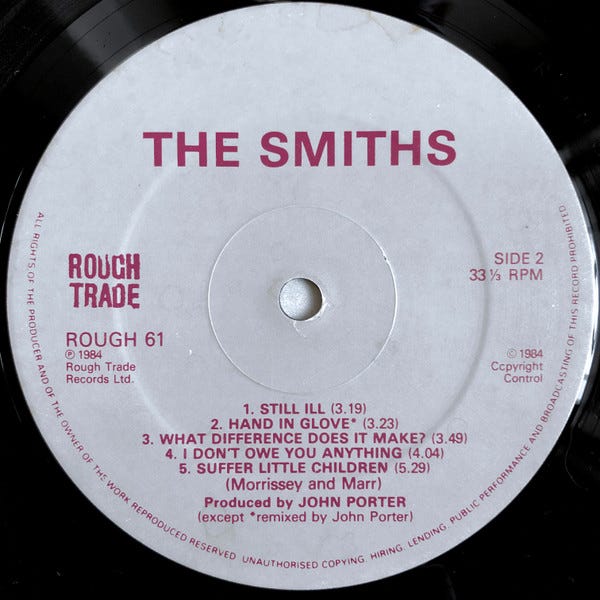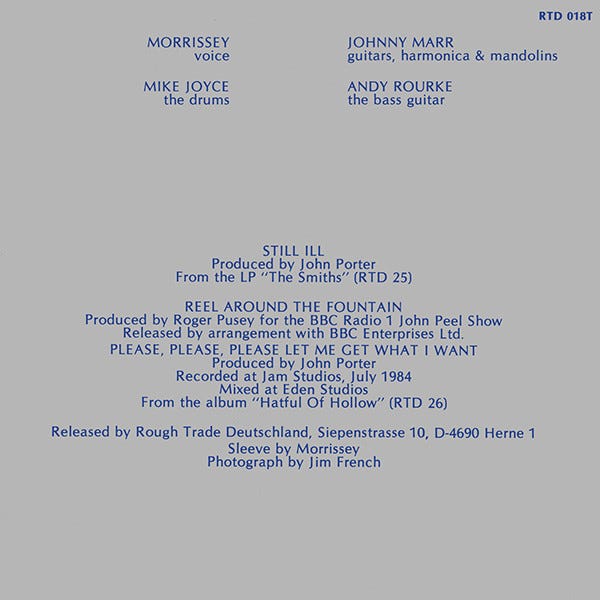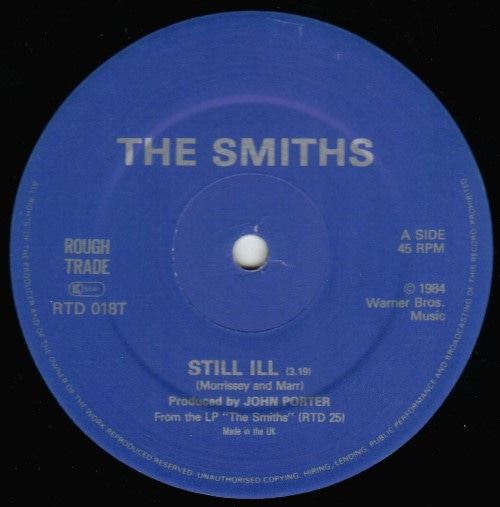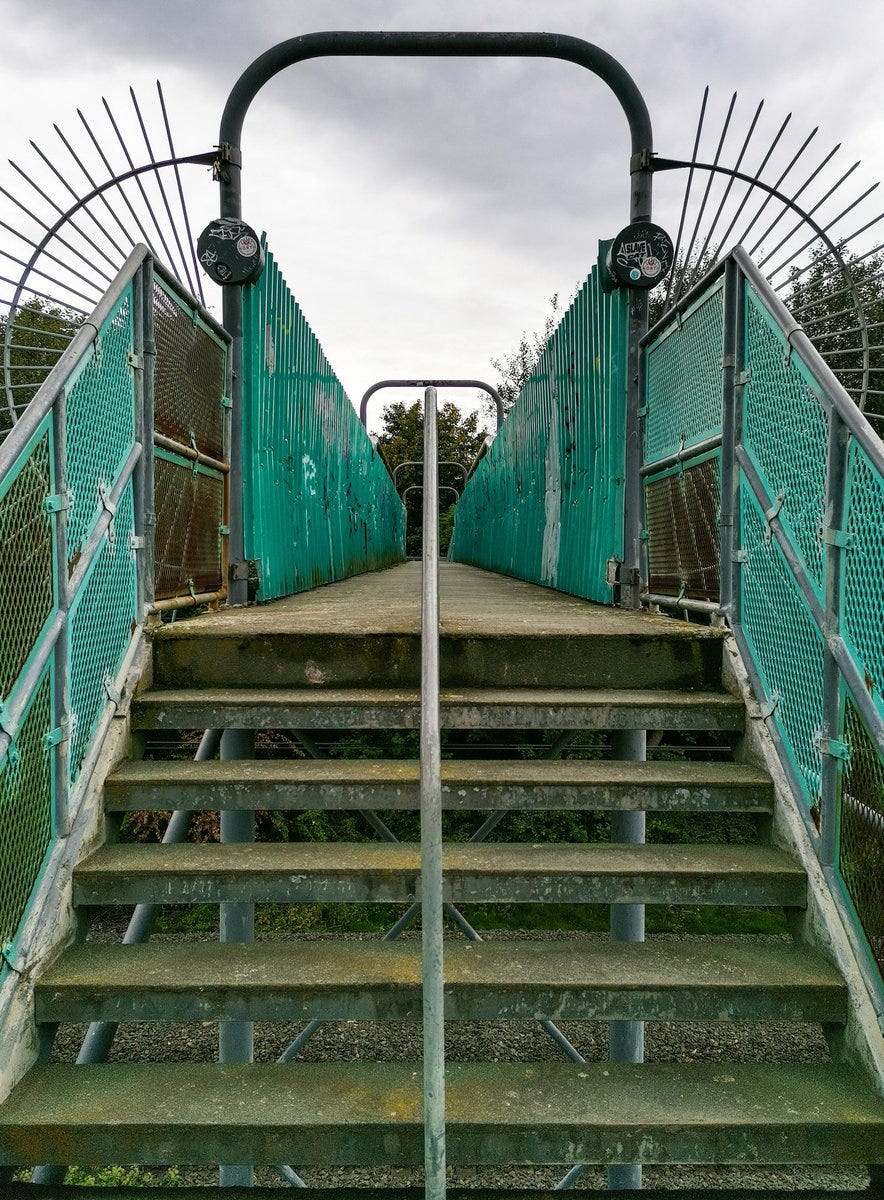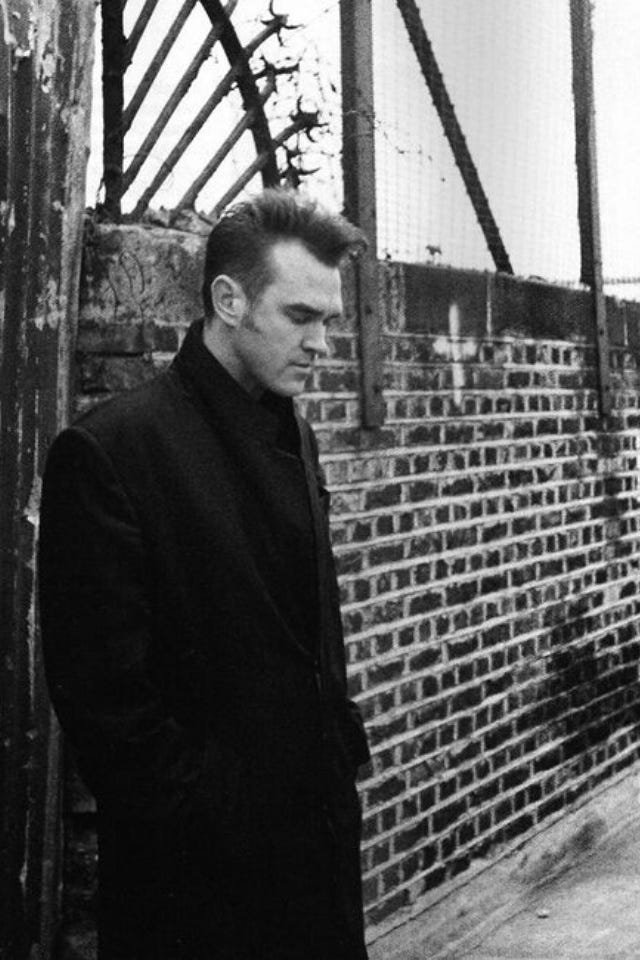‘Still Ill' is the sixth track on the Smiths’ eponymous debut studio album, which was released on February 20, 1984. The song, believed to have been written in early September 1983, was initially recorded with producer Roger Pusey on September 14, 1983 for the Smiths’ second appearance on John Peel's BBC program. This initial recording, bookended with an oddly upbeat harmonica riff, was broadcast on John Peel’s program on the 21st of that September. The Peel version of the song would later be released on the Smiths’ first compilation album, Hatful of Hollow, in November 1984. Listen to the Peel version of the song here:
The Smiths, who by this time had retained John Porter as their producer, recorded the studio album version of ‘Still Ill’ later that month at Matrix Studios in London. The Porter track was mixed in October 1983 at Pluto Studios in Manchester and, as mentioned above, formally released in February of 1984.
The album version of the song was released as a single in Germany in November 1984 to promote the Smiths’ Hatful of Hollow compilation album (notwithstanding that Hatful of Hollow contained the Peel version ‘Still Ill’). The German single utilized the very same cover art that appears on ‘Hand In Glove’, the Smiths’ debut single from the prior year.
Musically, ‘Still Ill’ showcases the increasing confidence and sophistication of Messrs. Marr, Rourke, and Joyce. But it is Johnny Marr’s melodic guitar that truly excels:
“Throughout ‘Still Ill’, Marr and Rourke play off against one another magnificently, one rising in scale as the other descends; the bassist pummelling the root notes that allow Marr free reign to unfurl its spine-tingling hook-line.”1
According to Morrissey, the song’s title was inspired by a query from his friend, Linder Sterling:
"'Are you still ill?’ asks Linder, as we meet our weekly meet at Kendals rooftop restaurant, and while a song is born, so too is a lifelong friendship fortified and not weakened by time.” -Morrissey, Autobiography
Lyrically, ‘Still Ill’ is something of a slow-burning existentialist statement that touches upon several themes, perhaps the most salient of which is the singer’s sexuality. While the UK decriminalized homosexuality in 1967, one must consider that a mere 16 years had since elapsed by the time Morrissey penned the lyrics. The line “Oh Am I still ill?” harkens back to the time when homosexuality was deemed to be an indication of mental illness, and thus acts as a thin cipher for the singer’s struggle with who he is. Morrissey ponders the question, and explores the issue further by rhetorically asking the listener "Does the body rule the mind/Or does the mind rule the body?”, to which Morrissey confesses as having no answer to.
The intimate encounter under the iron bridge - "Under the iron bridge we kissed, and although I ended up with sore lips..."- is borrowed almost directly from Viv Nicholson's2 autobiography Spend Spend Spend!, wherein she wrote "We walked for miles... over the iron bridge and down underneath on the towpath. We were kissing away and touching and getting really sore lips."
This encounter under the iron bridge is followed by the lines “It just wasn't like the old days anymore/No, it wasn't like those days…”, which is a lament for the passing of the dreams and freedom of youth. Indeed, this realization is all too common among young adults who come to appreciate, albeit far too late, just how idyllic their lives had been (notwithstanding the angst of youth) without the demands and responsibilities that invariably arise once one comes of age.
This realization must have been especially profound for Morrissey, considering that he was living in the post-industrial ennui of a decaying northern city in the early 1980s - a time when the Thatcher government expected the able bodied to get off the dole and find work - a notion that he obliquely dismisses:
“And if you must, go to work, tomorrow/Well, if I were you I wouldn't bother”
Indeed, one can deduce that the song’s intro, where Morrissey sings “I decree today that life is simply taking and not giving/England is mine, it owes me a living”, is intended as a blunt, no-nonsense petard directed squarely at the Thatcher government.
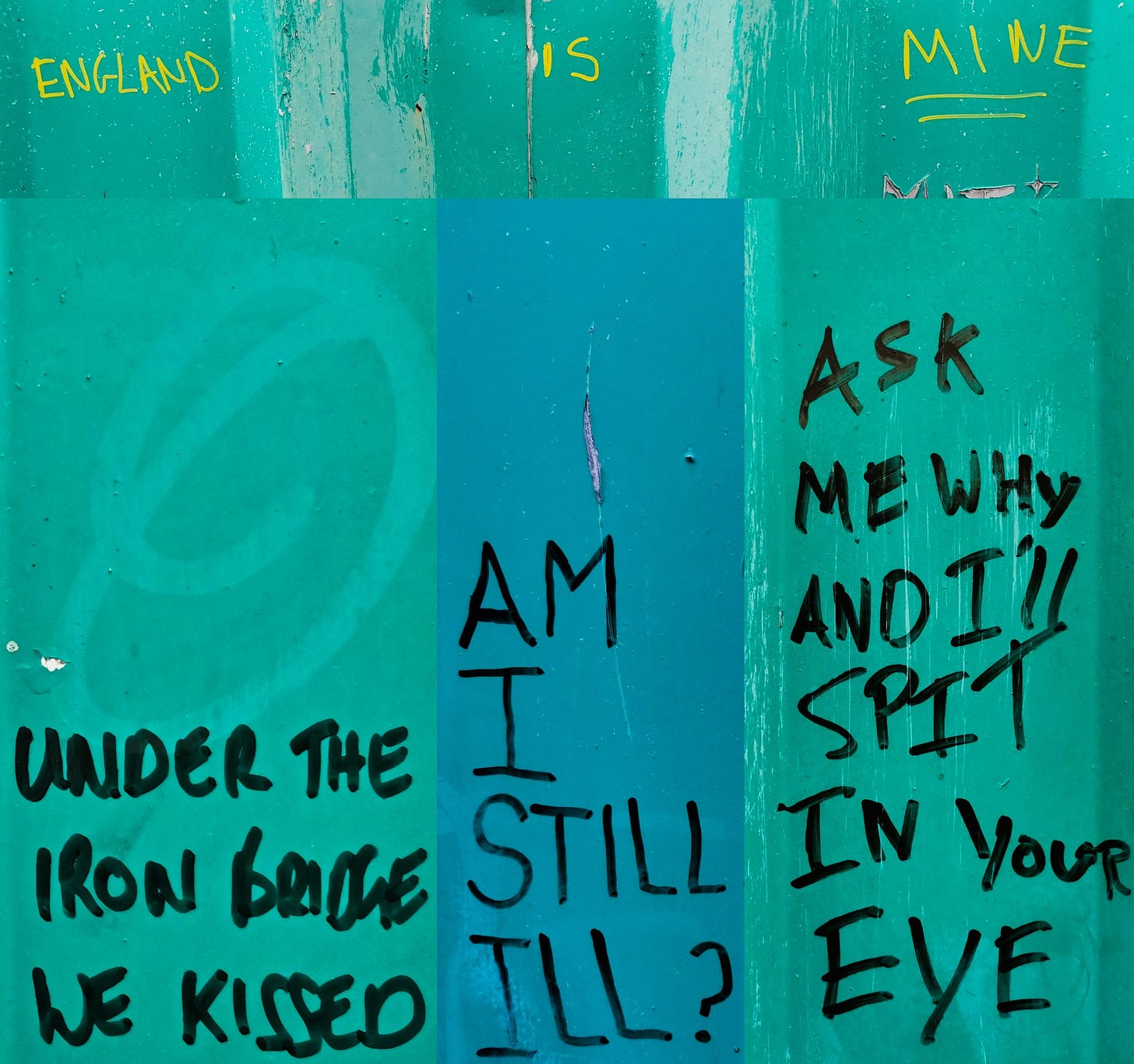
Despite his dour circumstances, Morrissey had the presence of mind to note that "...there are brighter sides to life/And I should know, because I've seen them, but not very often". Morrissey explains that "we cannot cling to the old dreams anymore", signifying both his desire and will to break free and chart his own course - in short, to transcend his modest place in the world.
'Still Ill' is a remarkable song given its themes and questions, as well as the conclusions it makes. Indeed, the song’s gravitas is such that it “sealed his [Morrissey's] role as spokesman for disaffected youth"3 almost overnight.
The song’s inclusion on a debut album by a burgeoning band that was hardly a household name is even more remarkable. Coupled with the homoerotic themes found on the Smiths' eponymous album, it reveals genuine courage and confidence on the part of the Smiths, and Morrissey in particular, to explore subject matter not typically found in popular music.
This unorthodox approach on the part of the Smiths actually embodies the underlying
Keep reading with a 7-day free trial
Subscribe to Morrissey, Ringleader of The Tormentors to keep reading this post and get 7 days of free access to the full post archives.

